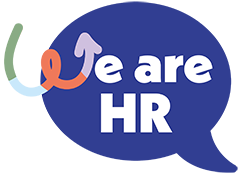Table Of Contents
Introduction
As an HR professional, it is important to stay up to date on the latest changes in employment legislation. In 2024, there are several changes coming into force that will affect employees and employers alike. Two of the most significant changes are the Career Leave Act and the Neonatal care (leave and pay) Act.
Career Leave Act
The Career Leave Act is designed to give employees more flexibility to take time off work to pursue educational or other opportunities that will help them advance their careers. Under the new law, employees will be entitled to take up to 12 weeks of unpaid leave every five years. To qualify for career leave, employees must have worked for their employer for at least one year.
The Career Leave Act is a significant change for both employees and employers. For employees, it provides an opportunity to take time off work to pursue their career goals without having to worry about losing their job. For employers, it means that they may need to be more flexible with their workforce planning.
Neonatal care (leave and pay) Act
The Neonatal care (leave and pay) Act is designed to provide support for parents whose babies require neonatal care. Under the new law, parents will be entitled to take up to 12 weeks of paid leave if their baby is admitted to neonatal care for at least seven days. To qualify for neonatal leave, parents must have worked for their employer for at least 26 weeks.
The Neonatal care (leave and pay) Act is a welcome change for parents who have to deal with the stress of having a baby in neonatal care. It will give them the time they need to be with their child and to support their partner. For employers, it means that they may need to provide more support for employees who are taking neonatal leave.
Impact on HR professionals
The Career Leave Act and the Neonatal care (leave and pay) Act will have a number of implications for HR professionals. Firstly, they will need to update their knowledge of the new legislation. Secondly, they may need to develop new policies and procedures to implement the changes.
Here are some specific things that HR professionals can do to prepare for the changes:
- Update your knowledge of the new legislation: Read the legislation and any guidance that is published by the government. You can also attend
- Develop new policies and procedures: You will need to develop new policies and procedures to implement the Career Leave Act and the Neonatal care (leave and pay) Act. For example, you will need to develop a policy on how to apply for and approve career leave and neonatal leave.
- Provide support to employees: You may need to provide support to employees who are taking career leave or neonatal leave. This could include providing them with information about the new legislation, helping them to develop a plan for their leave, and supporting them to return to work after their leave.
Benefits for HR professionals
The Career Leave Act and the Neonatal care (leave and pay) Act can also have a number of benefits for HR professionals. For example, the new laws can help to improve employee morale and engagement. Employees who feel that their employer supports their career development and personal needs are more likely to be happy and productive at work.
The new laws can also help to attract and retain top talent. In a competitive job market, employers need to offer attractive benefits and working conditions in order to attract and retain the best employees. The Career Leave Act and the Neonatal care (leave and pay) Act can help employers to show that they are a family-friendly employer that values its employees.
Conclusion
The Career Leave Act and the Neonatal care (leave and pay) Act are two significant pieces of legislation that will come into force in 2024. HR professionals need to be prepared for the changes and to develop policies and procedures to implement the new laws. By doing so, HR professionals can help their employers to attract and retain top talent and to improve employee morale and engagement.


